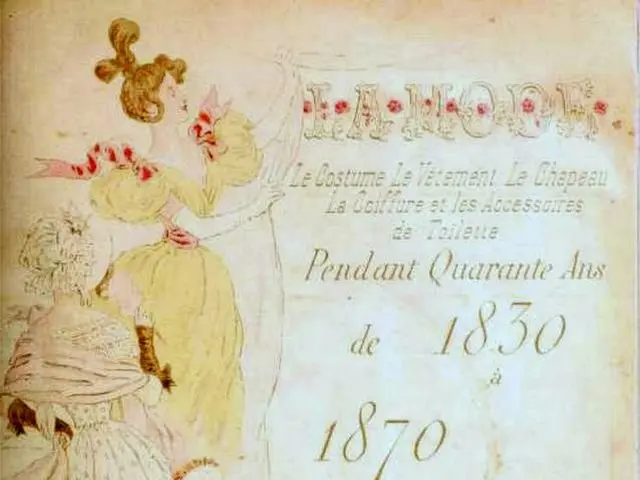Exploring Depths of Fantasy Genre: Unveiling Colonial Elements
Diving into the Heart of Colonial Themes in Fantasy
Escapism meets enlightenment in the captivating world of fantasy, where authors like J.R.R Tolkien and countless others weave tales of conquest, resistance, and empire. As I crafted The Knight and the Rebel, I found myself immersed in the intricate web of these themes, dissecting the machinery of conquest and its human toll.
Imperial Ideologies Unveiled
Colonization in fantasy often follows a familiar pattern. A superior civilization imposes its will on lesser peoples, under the guise of progress. The Ostreich Empire in my story, for instance, operates on this principle, genuinely believing they're bringing civilization to Wiete. Yet, through the eyes of Ragnar, we see the allure of this ideology, even for those who might question it. The Empire doesn't just conquer with swords; it conquers with ideas, promises of progress, and power.
Flipping the Script: Subverting Colonial Tropes
Marked by powerful explorations, contemporary works like N.K. Jemisin's Broken Earth trilogy and Samantha Shannon's The Priory of the Orange Tree invert traditional colonial narratives, illuminating systemic oppression through a fantasy lens. These stories, like The Knight and the Rebel, portray the consequences of colonization for both the conqueror and the conquered, reshaping identities and loyalties in a complex dance of power.
The Face of Resistance
Writing resistance is no easy feat. Resistance is not always glorious; it's the desperate actions of individuals against overwhelming odds. Through Maja's chapters, I strove to portray the harsh reality of resistance, acknowledging the difficult choices that often accompany such struggles. Ken Liu's Dandelion Dynasty series captures this very essence, probing the impact of rebellion on those who fight for freedom.
The Dark Side of Resistance
I was particularly intrigued by the moral quandaries faced by resistance movements. Maja aligns herself with Asgar, knowing his brutality might aid her cause, but wrestling with the moral cost. This reflection of historical resistance movements grappling with questions of acceptable violence and moral compromise adds depth to the narrative.
The Puppet Masters of Colonial Control
Another theme I delved into was the co-opting of local elites by colonial powers to maintain control. Ragnar's elevation to knight isn't merely a personal achievement; it's a calculated move to legitimize Imperial rule. This mirrors how real colonial powers worked through local authorities, weaving intricate webs of loyalty and betrayal.
A Lens for Colonialism: Fantasy's Unique Glimpse
Fantasy offers a unique vantage point to scrutinize colonialism, allowing us to analyze the mechanisms of conquest and the human cost of resistance through world-building and magic systems like mental influence and control. In The Knight and the Rebel, this focus on mental manipulation serves as a metaphor for how colonial powers distort the thoughts and actions of both the conquered and their own people.
Showing Both Sides of Colonialism
Some readers have asked why I chose to present both perspectives rather than solely focusing on the resistance. To truly understand colonialism, it's essential to examine both sides; through Ragnar, we see how people justify their roles within oppressive systems, and through Maja, we feel the devastating human cost of those justifications.
Modern Fantasy's Colonial Evolution
Contemporary fantasy increasingly tackles colonialism beyond military conquest, delving into aspects like culture, identity, and power. Works like R.F. Kuang's The Poppy War and S.A. Chakraborty's Daevabad Trilogy reveal how conquest reshapes societies and individuals.
The Magic of Fantasy: Exploring Colonialism Uniquely
Fantasy offers unique tools to explore colonialism. Magic can symbolize technology or cultural power. Fantasy races provide a means to examine differences without directly reflecting real-world ethnicities. Invented religions and customs help illustrate cultural imperialism.
The Aftermath of Colonialism in The Knight and the Rebel
In The Knight and the Rebel, I aimed to portray how colonialism impacts everyone - colonizer and colonized, collaborator and resistor. There are no innocent bystanders in these struggles; only complex individuals grappling with the consequences of their choices.
In the vast landscape of fantasy, authors continue to challenge the status quo, pushing the boundaries of storytelling and shedding light on the intricacies of colonialism. By exploring these themes, maybe we can gain a deeper understanding of our own world and the choices we make within it.
What colonial themes in fantasy have resonated with you? How do you think the genre can better explore these complex issues? Share your thoughts below.
Further Reading:
- Binti Series by Nnedi Okorafor
- The Poppy War Trilogy by R.F. Kuang
- Black Leopard, Red Wolf by Marlon James
- The Fifth Season by N.K. Jemisin
[1] Morrison, P., (2019) “Beyond the fantasy centuries,” Los Angeles Review of Books, [online] 11th December. https://lareviewofbooks.org/review/beyond-the-fantasy-centuries
[2] Mills, A., & Mooney, D., (2018) "Deep Dives: Ten Must-Read Fantasy Books," Down the TBR Hole, [online] 14th September. https://down-the-tbr-hole.blogspot.com/2018/09/deep-dive-ten-must-read-fantasy-books.html
- Speculative fiction, such as sci-fi and fantasy novels, offers a unique lens for exploring complex historical themes, like colonialism, through world-building and inventive magic systems.
- In the genre of speculative fiction, books like N.K. Jemisin's 'Broken Earth' trilogy and Samantha Shannon's 'The Priory of the Orange Tree' subvert traditional colonial narratives, revealing systemic oppression through fantastical storytelling.
- Lifestyle blogs and social media platforms regularly discuss education-and-self-development resources related to the exploration of colonial themes in speculative fiction books.
- Political debates and general-news outlets often analyze the impact of colonialism on modern society, citing examples from both history and contemporary speculative fiction.
- Some critics argue that entertainment, particularly speculative fiction, plays a crucial role in helping society understand and address the implications of colonialism by offering thought-provoking scenarios and character studies.








